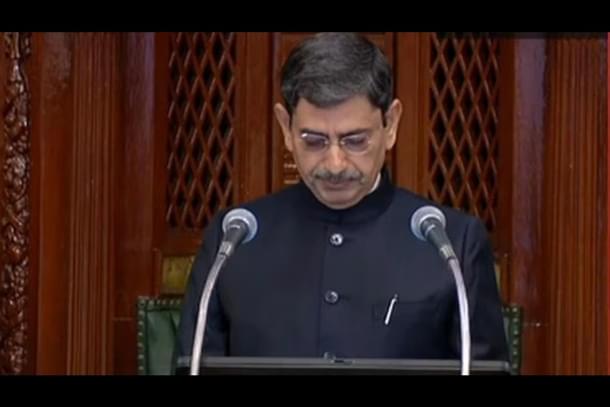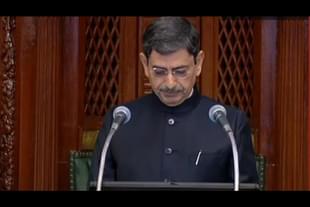Politics
The BJP Would Do Well To Dump Loose Cannons Like TN Governor Ravi
R Jagannathan
Jun 30, 2023, 12:50 PM | Updated 12:49 PM IST
Save & read from anywhere!
Bookmark stories for easy access on any device or the Swarajya app.


The Narendra Modi government and the Bharatiya Janata Party (BJP) have been saved from deep political and legal embarrassment, thanks possibly to a last-minute intervention from the Home Ministry.
According to news reports, Tamil Nadu Governor R N Ravi, unilaterally dismissed V Senthil Balaji from M K Stalin’s council of ministers because he allegedly faces “serious criminal proceedings in a number of cases of corruption, including taking cash for jobs and money laundering".
But hours later, after much political outrage over the unconstitutionality of his actions, the Governor called back his order in order to consult with the Attorney General. Shouldn’t that have been done before the dismissal announcement?
The Modi government needs a serious rethink on the kind of people it appoints as governors.
While some amount of political sparring between opposition parties and “activist” governors is par for the course, what Ravi did was something unprecedented: He took executive action without the recommendations of the cabinet, an action not sanctioned by any part of the Constitution.
There are only two or three situations in which governors can take their own decisions: one is to use one’s own political judgement about which leader to call to form a government when election results are inconclusive; another is to ask a chief minister to face a trust vote in case there is some doubt about majority support; and the third is to send back for reconsideration legislation that he or she thinks may not pass constitutional muster.
In the dismissal of Balaji, who admittedly faces corruption charges and whose judicial custody has been extended till 12 July by a Chennai court, the Governor clearly acted unconstitutionally by not seeking the elected government’s advice.
A moral imperative usually cannot over-ride an explicit constitutional provision that a governor cannot act without the advice of the cabinet.
At best, Ravi could have privately advised Stalin to drop the minister, but he cannot do anything if Stalin refuses to do so.
The BJP should seriously consider removing Ravi from the gubernatorial post, for it is ill served by loose cannons and persons who act in ignorance, or even defiance, of the constitutional mandate.
But for the decision to recall the earlier order of dismissal, the BJP would have seriously damaged its standing in Tamil Nadu by confirming to Tamilians that it is subservient to Delhi’s political priorities.
The BJP must also rethink its choices of governors. Their purpose is to uphold the Constitution, not irritate opposition governments in states.
Also, even if there is legitimate reason for a governor to disagree with chief ministers, this difference must largely be settled through private conversation, and not public declarations.
The BJP gains nothing from such needless confrontations.
Jagannathan is former Editorial Director, Swarajya. He tweets at @TheJaggi.





